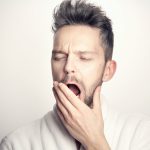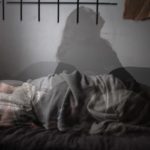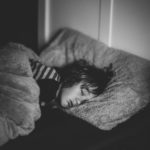A sleep disorder, or somnipathy, is a medical disorder of the sleep patterns of a person or animal. Some sleep disorders are serious enough to interfere with normal physical, mental and emotional functioning. A test commonly ordered for some sleep disorders is the polysomnography. Disruptions in sleep can be caused by a variety of issues, from teeth grinding (bruxism) to night terrors. When a person suffers from difficulty in sleeping with no obvious cause, it is referred to as insomnia. In addition, sleep disorders may also cause sufferers to sleep excessively, a condition known as hypersomnia. Management of sleep disturbances that are secondary to mental, medical, or substance abuse disorders should focus on the underlying conditions.
Shorter sleep and depression: what role do our genes play?

Nick Donnelly discusses how one’s genetic predisposition to shorter sleep is associated with the onset of depression in older adults.
[read the full story...]








